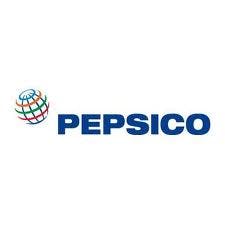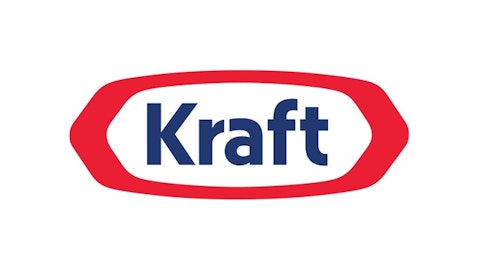Activist investor Nelson Peltz, who owns significant stakes in soft-drink maker PepsiCo, Inc. (NYSE:PEP) and snacks giant Mondelez International Inc (NASDAQ:MDLZ), recently went public with his suggestion that PepsiCo should acquire crackers and sweet snacks giant Mondelez for $35 to $38 a share (roughly $67.8 billion) in an all-stock swap.
So, should Mondelez International Inc (NASDAQ:MDLZ) owners be getting excited? Maybe. Peltz has plenty of experience in revamping food and beverage companies (his turnaround of Snapple is now a Harvard case study) and a history of pushing through changes he wants over the objections of entrenched management.
Snacks are a growth business

According to widely cited marketing research company companiesandmarkets.com, the global packaged snacks industry will be worth $330 billion per year by 2015. The snacking habit is also on the rise: In 2009, 24% of participants in a SymphonyIRI Group’s State of the Snack Industry Report survey said they consumed snack foods three or four times per day. By 2012, that number was up to 43%.
Merging with Mondalez – assuming PepsiCo, Inc. (NYSE:PEP) could work its way around any potential antitrust violations – would add Oreo, Chips Ahoy!, Ritz, Nabisco, Triscuit, Nilla, Honey Maid, Newtons, Cadbury, Trident, Certs, Dentyne, Halls, Chiclets, Philadelphia Creme Cheese and a dozen other top shelf brands to Pepsi’s Frito-Lay empire and cement Pepsi’s position as the global snacks powerhouse. Today, Pepsi’s Frito-Lay division controls 62% of the U.S. salty snack category, employs 48,000 people and brings in $13 billion in sales per year. Its existing global footprint is massive, with exports to 79 countries around the globe.
Is it time to end the Cola Wars?
The endless Cola Wars with their taste-test tactics (The Pepsi Challenge), celebrity-endorsement arms races – think a manic Bill Cosby, Michael Jackson’s hair on fire – and other unspeakable atrocities (New Coke) may leave some investors with the mistaken impression that The Coca-Cola Company (NYSE:KO) and PepsiCo, Inc. (NYSE:PEP) are the corporate equivalent of the US and the Soviet Union during the height of the Cold War, fighting for hearts, minds, and global real estate on every conceivable front.
In reality, The Coca-Cola Company (NYSE:KO)’s dominance is almost entirely limited to soft drinks. The company’sprospective partnership with Procter & Gamble was signed off on in 2011, and to date has yet to bear fruit. PepsiCo, Inc. (NYSE:PEP) has exactly the opposite problem. While the company enjoys a commanding domestic position in snacks, it seems destined to remain a distant third in the soft-drink category. Pepsi’s flagship product now trails both Diet Coke and Coca-Cola Classic by a wide margin. The reason for this growing disparity has nothing to do with celebrity endorsements and everything to do with the fact that the wider availability of Coca-Cola products leads to a virtuous circle that Pepsi is unlikely to break.
The diagram below illustrates the self re-enforcing competitive advantage that The Coca-Cola Company (NYSE:KO)’s distribution system has enjoyed for more than a century:
By ceding the field in favor of creating a global snacks empire, Peltz argues, PepsiCo, Inc. (NYSE:PEP) would unlock more value for the company’s investors while retaining a significant foothold in the beverage market. Pepsi’s “Power of One” campaign, which attempts to drive sales increases by associating the Pepsi brand with the company’s other mega-popular brands the company owns – like Doritos – was originally launched 13 years ago, with only incrementally higher unit sales to show for it.
And while PepsiCo, Inc. (NYSE:PEP)’s stated future objectives of making healthy drinks and snacks that people will want to consume by the truckload is certainly laudable and attractive in theory, it’s also exactly what the global package foods industry has been trying to accomplish for the past 40 years. The idea that Pepsi food scientists will somehow crack the code in the near future is highly speculative at best.





